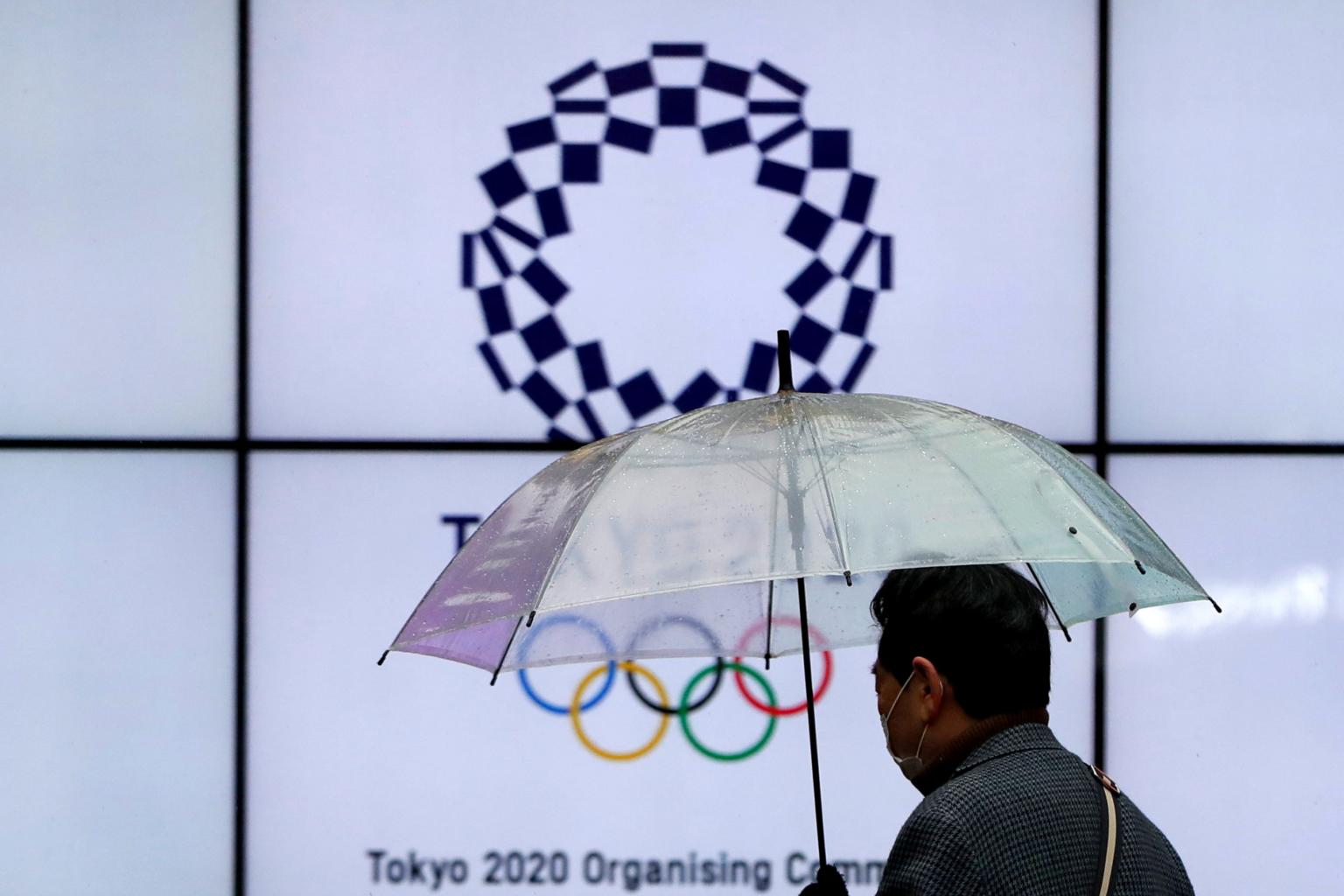Olympics: Tokyo Games to exclude overseas visitors over Covid fears, says Japanese paper
Sign up now: Get ST's newsletters delivered to your inbox

Some 600,000 foreign visitors and more than 11,000 athletes were originally expected to attend the Tokyo Olympics.
PHOTO: REUTERS
Follow topic:
TOKYO (REUTERS, BLOOMBERG, AFP) - Japan's government is planning to stop overseas spectators coming to the Summer Olympics due to worries they will spread the coronavirus, a report said on Wednesday (March 3).
The final decision would be made this month after talks with the International Olympic Committee (IOC) and other parties, the Mainichi newspaper reported, citing multiple unnamed sources.
The government would continue to consider whether to accept spectators from within Japan, including the number allowed into venues, the Mainichi added.
The report came as the local organising committee was set to host a meeting on Wednesday with officials from the IOC, the International Paralympic Committee, and the Tokyo and national governments.
The question of whether to allow spectators into venues was top of the agenda and organisers have previously said they would make a decision by March.
A Yomiuri newspaper poll showed on Wednesday that, if the Games are to go ahead as scheduled, 91 per cent of people in Japan want spectators kept to a minimum or not allowed at all.
The poll - conducted between Jan 18 and Feb 2 - showed that 70 per cent of respondents said they were "interested in the Olympics", but 58 per cent said they did not want them to be held this year because of fears over Covid-19.
The 58 per cent in opposition was, however, about 20 percentage points lower than earlier opinion polls.
Delayed Games
The Tokyo Olympic Games were postponed last year because of the pandemic and rescheduled to take place this year from July 23.
The IOC, Japanese government and Tokyo organising committee have said they are fully focused on holding the Games this summer.
Meanwhile, the organisers approved 12 new female executive board members on Wednesday, less than two weeks after appointing a woman president in the wake of an embarrassing sexism row.
The appointments increase female representation on the Tokyo 2020 board from 20 per cent to just over 40 per cent, meeting a target set by Ms Seiko Hashimoto when she took over as president last month.
The seven-time Olympian replaced 83-year-old Yoshiro Mori, who resigned after his claims that women talk too much in meetings sparked an outcry in Japan and abroad.
"Raising the proportion to 42 per cent sends a message to various groups, to the sporting world and the whole society, and we hope it will have an impact," said Ms Hashimoto, who was one of just two women in Japan's Cabinet until she stepped down to take up her new post.
Japan has already spent more than US$26 billion (S$34.5 billion) to prepare its capital for the Games, before the postponement announced in March 2020, according to some estimates. Some 600,000 foreign visitors and more than 11,000 athletes were originally expected to attend the event.
Excluding the overseas visitors will make it easier for organisers to justify holding the event this summer, despite a resurgence of infections around the world, a second state of emergency in parts of Japan and public opposition toward hosting the event.
While coronavirus infection numbers are low in Japan compared with the United States and many European countries, the greater Tokyo metropolitan area remains in a state of emergency, with restrictions in place for spectator numbers for big sporting and cultural events, as well as closing times for bars and restaurants. The country remains closed to non-resident foreigners.
Japan has so far confirmed 431,250 coronavirus cases and 7,931 deaths as of Monday.

